New BMC Teammachine is 20 per cent stiffer - but does it need to be?
Headline numbers for the 2021 Teammachine: 20 per cent stiffer, six percent more aero and nine per cent lighter
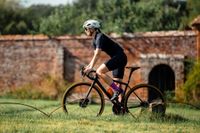
The latest race content, interviews, features, reviews and expert buying guides, direct to your inbox!
You are now subscribed
Your newsletter sign-up was successful
All of BMC's bikes are 'machines' - Timemachine, Roadmachine, Teammachine. The latter is the road race bike (road racing is a team sport, after all), and a decade after its inception, it's had a facelift for 2021.
The 'machines' of BMC are constructed with assistance from its own in-house software. Every frame is the product of thousands of computer-generated tests which seek to find the balance between stiffness, weight, compliance - and now aerodynamics. Of course, weight and drag are always targets for reduction - but stiffness and compliance are subjective.
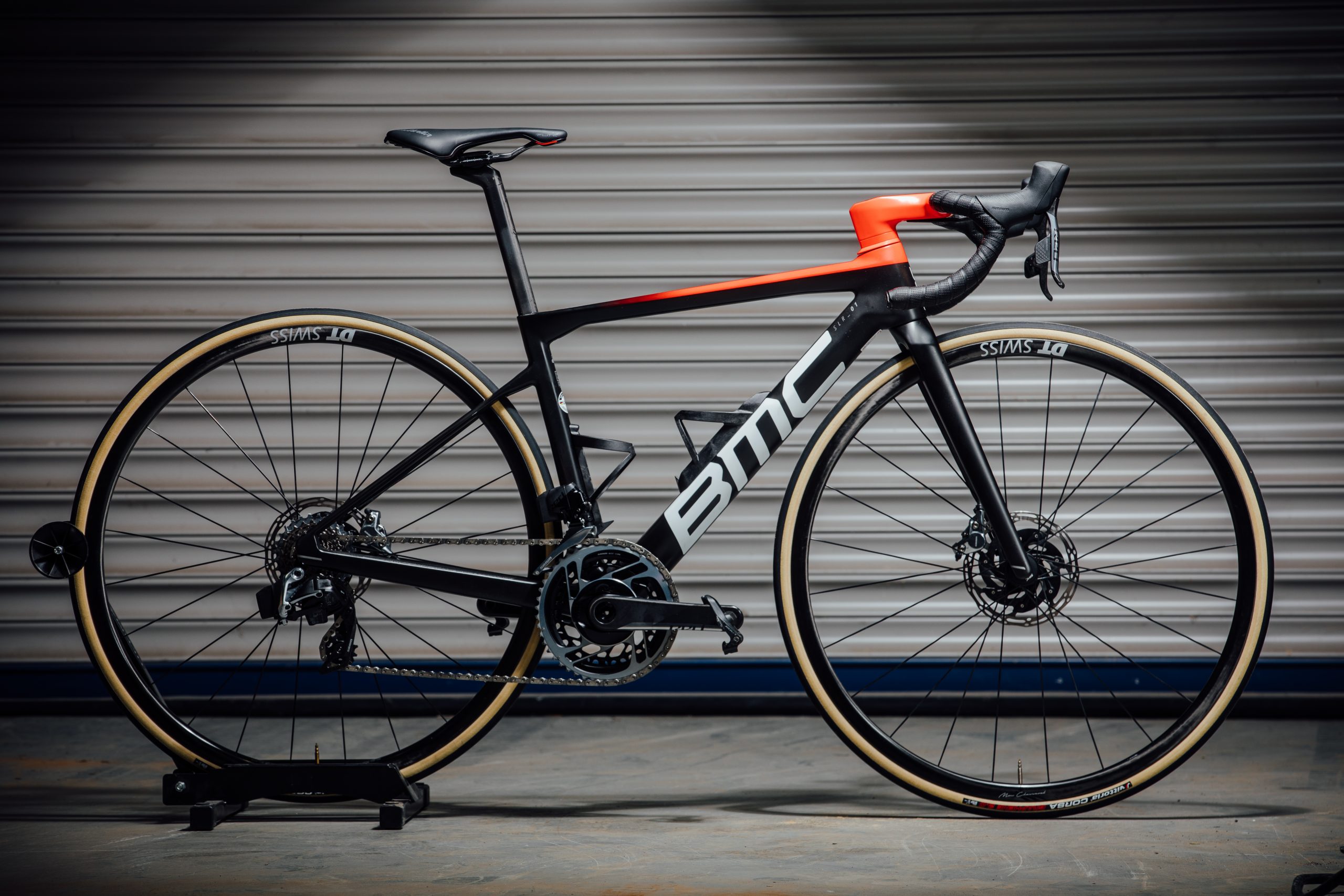
The new, disc brake only, BMC Teammachine is reportedly now six per cent faster (more aero), nine per cent lighter - and a jaw-dropping 20 per cent stiffer. It's also, according to BMC, "more compliant than ever".
This third stat - 20 per cent stiffer - surprised me. I've always considered the SLR 01 an extremely stiff bike. Twenty per cent is a lot. So, what's been done, and why? And, since I've had the bike on test for a week - how has it performed over the first 320 kilometres?
More aero
The Teammachine, like basically every road race bike released this year, has been given an aero facelift.
The latest race content, interviews, features, reviews and expert buying guides, direct to your inbox!
BMC does not give a set wattage saving, head of research and development Stefan Christ told me: "a wattage saving doesn't really mean anything, it depends on the rider and how fast they're going".
The six per cent figure comes from the average improvement across a range of riders - at 45kph. All riders were faster, ranging from two to nine per cent. Christ confirmed that not enough riders were involved in the test to draw conclusions as to who may benefit more.
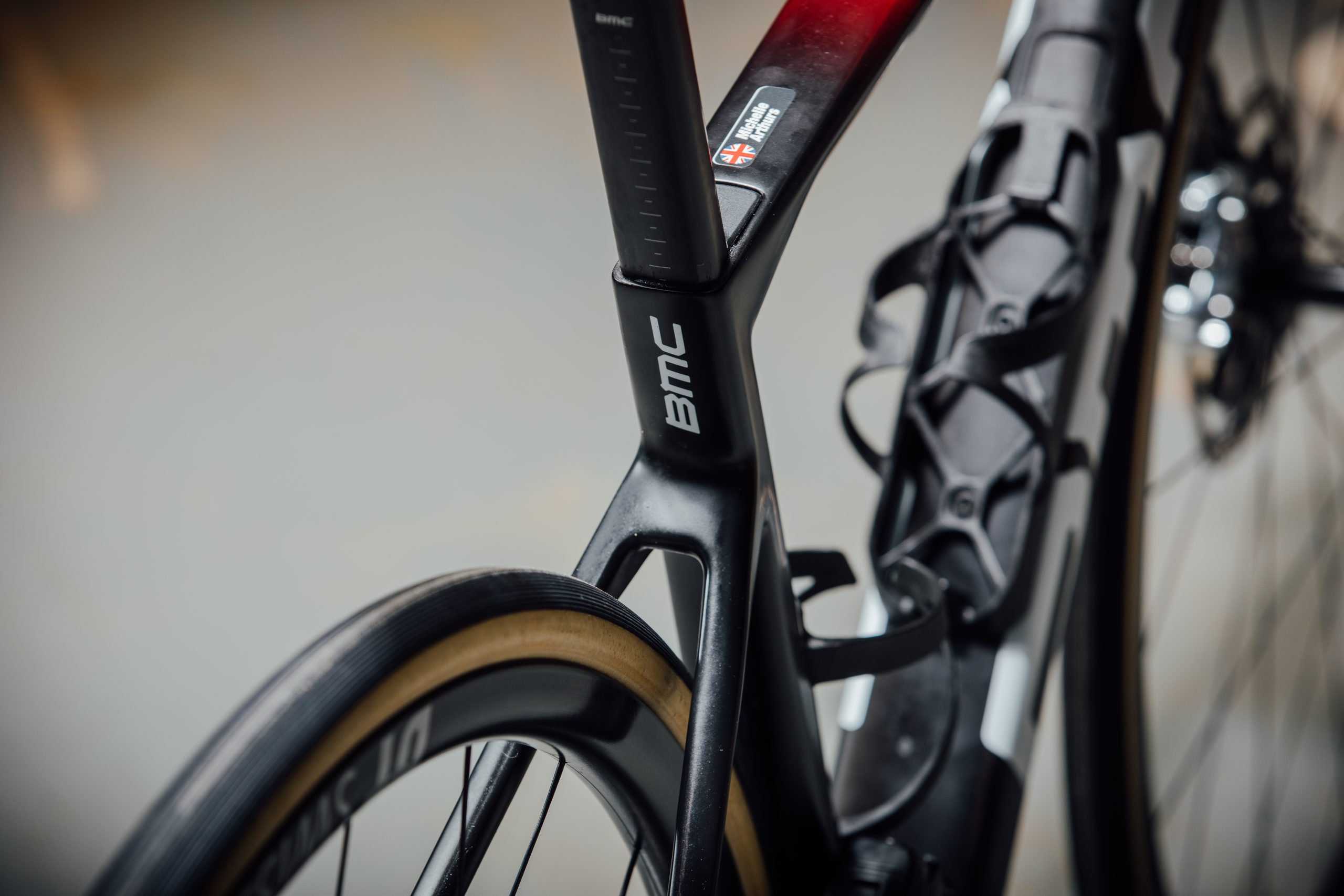
To make the bike more aero, BMC fed its ACE+ in-house software a selection of tube shapes, before validating decisions via further Computational Fluid Dynamics (CFD) testing.
Key areas for optimisation where the downtube and fork. The down tube surface area has been increased, with a Kamm tail profile chiming in. This works alongside the 'Aerocore' bottle cage design, which also formed part of the previous iteration but continues to be pretty stand out in the way it smoothes out the cage to frame interface.
The fork profile has been reshaped, taking cues from the Timemachine road - with a stealth dropout design and integrated thru-axle nut.
The D-shaped seat post remains, as does the cable-free ICS Carbon integrated cockpit. On the lower end models, there's the ICS2 - this new design uses the tidy aero stem of the ICS but allows riders to swap handlebars more easily.
The front brake is now easier to adjust, a request from riders and team mechanics, and there's clearance for tyres up to 30mm - in answer to ever-increasing trends.
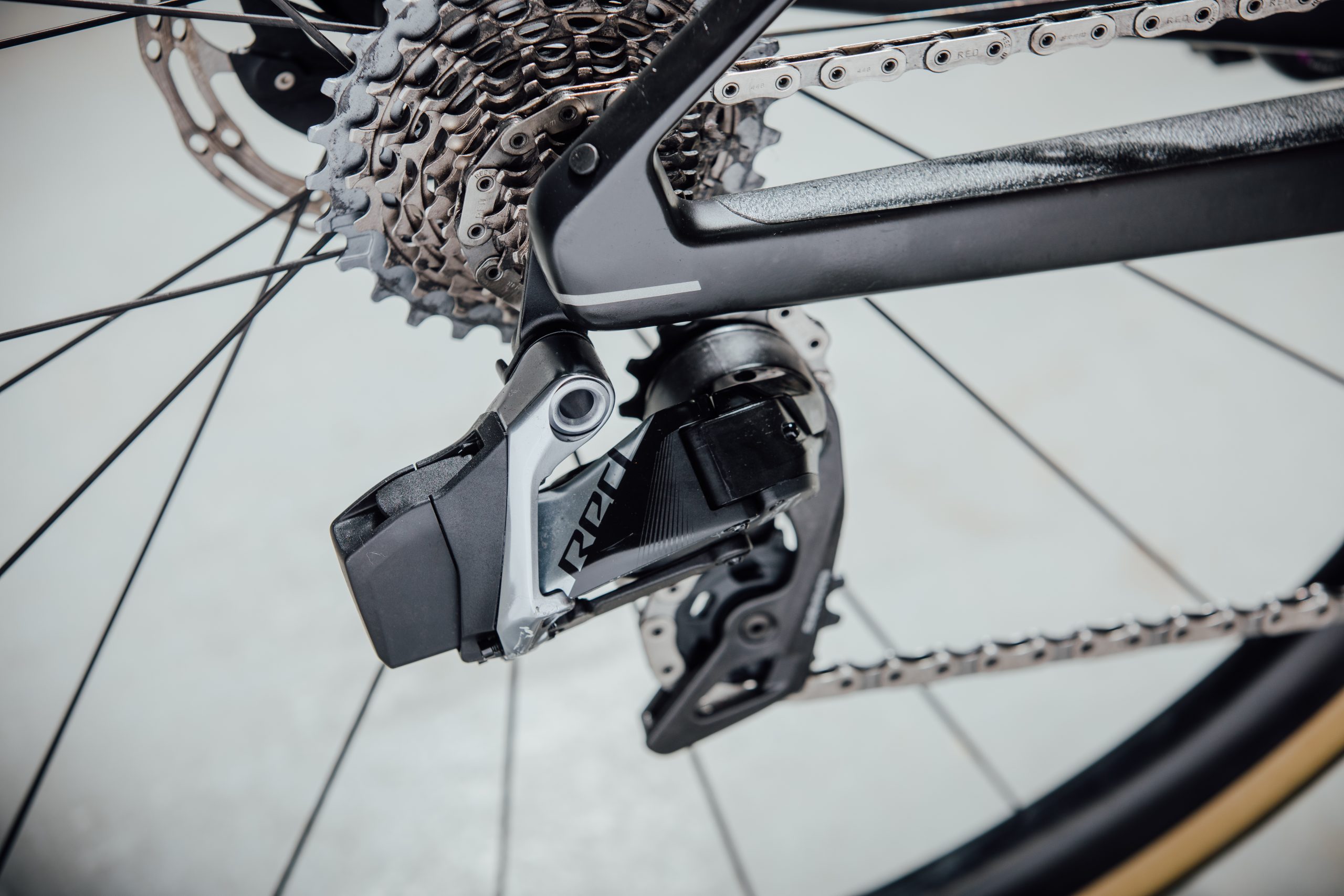
Swapping wheels in and out using the new dropout design was easy, and when the bike arrived in pieces at my door, I was impressed by the simplicity of the braze-on rear mech attachment.
Of course, the rider makes up the vast majority of drag. There are no major changes to the geometry. The Teammachine, as ever, aims to put you in an aggressive position. My size 47 came with a stack/reach of 506/367. For reference, I'd usually ride a 52 in the Tarmac range, and that comes in at 527mm.
Lighter
A size 54 in the top-end model has a claimed weight of 6.5kg, though my 47 sat at 6.61kg on the Cycling Weekly scales. There is an increase when you hit the 'SLR' (as opposed to SLR01) models - these start at 7.7kg for a 54.
A size 54 SLR01 frame weighs 820g, with the fork at 345g and the seatpost 185g. Comparatively, the SLR comes in at 990g, 375g and 195g.
The weight savings on the previous iteration come from shaving off grams here and there - 10g from the seatpost, 50g from the fork, use of lighter weight paint, and in the redesign of the ICS cockpit - saving 100g.
I've been testing the top-end, Teammachine SLR01 with SRAM Red eTap - and there is no denying that its low weight feels immense on the climbs.
I live in a valley, and there are ascents that I'd usually avoid on the way home after a ride, but on the Teammachine I just pointed the bike upwards and got on with it, occasionally with a smile on my face (despite the fact we've had some pretty horrendous weather in the week I had the bike).
The lightweight carbon combined with stiffness does create a slightly 'tinny' ride quality, as opposed to the plush speed you might get from something with a little more cushioning.
Stiffer - and more compliant
BMC says that the bike is 20 per cent stiffer, but also more compliant - eg. comfortable. This sounds like an oxymoronic phrase, but it's not as silly as a first glance might suggest.
>>> Is a stiffer frame always faster?
Stiffness is measured via millimetres of flex, each brand has its own method, and we know that in double-blind tests, riders (from beginners to pros) have been unable to determine if a bike is stiffer or not. It's one part of the infamous 'ride quality', which as we all know is extremely subjective.
The increased stiffness refers to handling stiffness ('lateral stiffness'). An even wider bottom bracket shell (the BB itself is PF86) makes for increased torsional stiffness whilst a combination of the headtube, fork, steerer, and ICS handlebar creates more stiffness at the front end. Vertical stiffness, which we'd consider the antithesis to comfort, by comparison, has been increased by "less than five per cent", according to Christ.
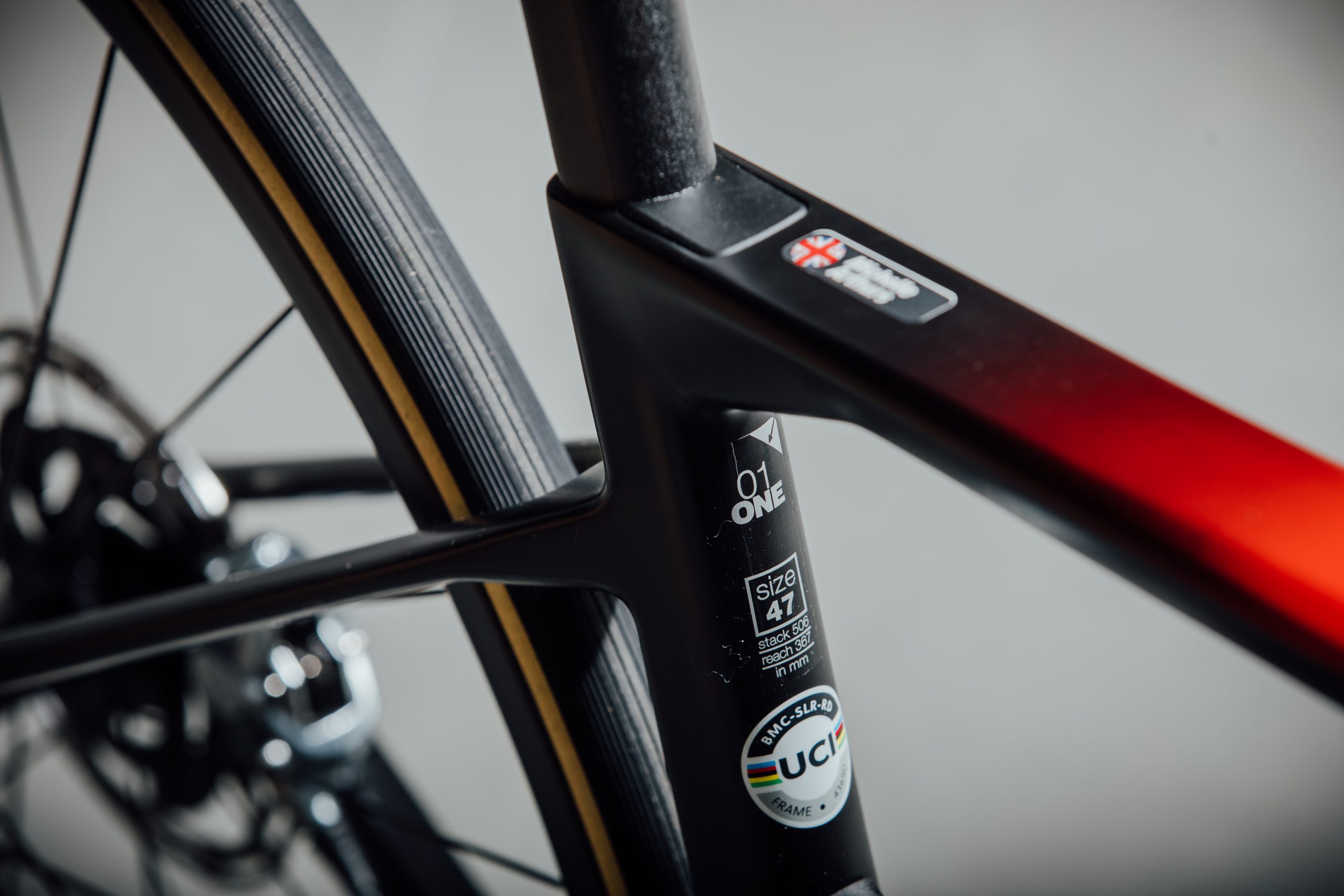
The added comfort, BMC says, comes from fine-tuning the carbon layup, and allowing more flex at the seatpost.
Point the bike at a descent or a corner and it nails it. I felt confident that I could get a lean on without fear of sliding out and there's a stunning directness in the way the bike responds. The handling on the previous iteration of the BMC SLR 01 was impeccable, and that's not changed. I found myself really testing the limits on this bike. My size 47 comes with a 71.5 degree head angle and a super short 968mm wheelbase, adding up to that snappy handling.
On smooth tarmac, it absolutely excelled - eating up the miles with quick-footed acceleration on the punchier, short climbs. However - when hitting broken sections of road, the BMC SLR 01 was not my friend. I could feel every bump throwing me around on the road.
Eager to enjoy the bike more, I swapped the tyres from a set of Vittoria Corsa's to a Pirelli P Zero, and there was perhaps a slight improvement, but it was marginal - both tyres claim to be a 25mm and measure in at 27mm, and both are supple race tyres. I'd have swapped on a 28mm were the bike not due to return seven days after arrival.
The fact is that the BMC Teammachine is a thoroughbred race bike, and it performs well when you're riding hard and fast on smooth roads, but for me, it was clattery elsewhere.
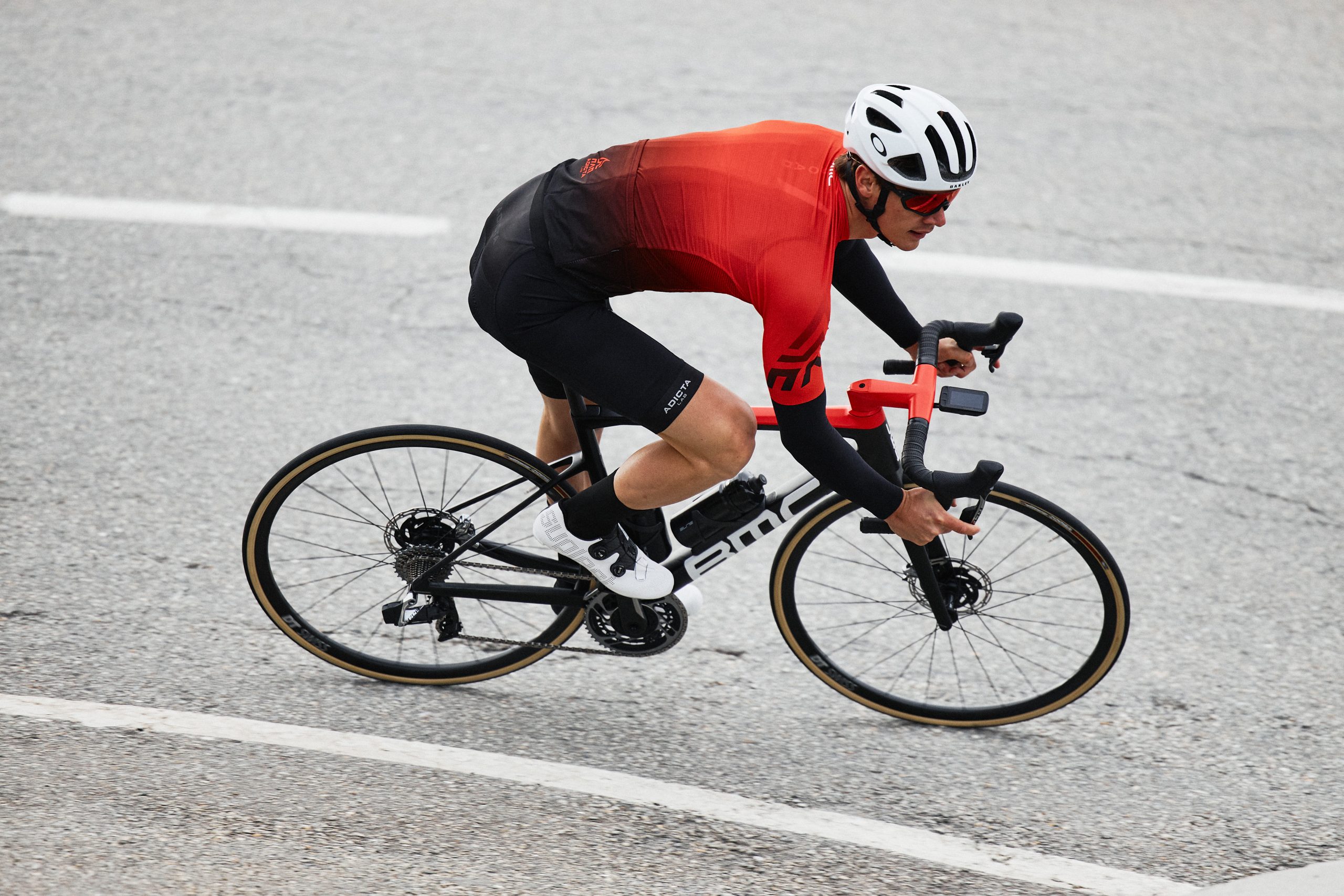
I'm riding a 47cm frame, so wondered if my experience might be different to that of those on a larger frame, but Christ confirms: "The riders are still going for one size smaller [to use a longer stem] so on the NTT team many are on a 47cm frame."
"The strive for more stiffness came from demand from the professional racers, this is definitely [a bike] speaking to professional riders and those inspired by a bike that feels like a race bike."
Some of the bumpy ride quality could be evened out via a wider tyre. Christ said: "Here, the roads are super good and a 25mm tyre - measuring 27mm - is ideal. Going for a wider tyre does increase frontal area, therefore drag. But [tyre preference] is something that will be country specific. I would assume, in a country like the UK maybe a 28 that measures 30 is the perfect choice."
Ultimately - it's a rider's choice. The pros were reportedly looking for more stiffness, and this is a quick-footed, responsive ride - so if that's what you look for in a bike, the new Teammachine SLR01 could be up your street.
ICS and ICS 2
The top two Teammachine SLR01 models sport the ICS bar, whilst all other iterations come with the ICS2 stem and BMC RAB 02 handlebars.
The ICS bar neatly hides all the cables. I didn't dismantle this one, but we've had the ICS system in the office before. Swapping the stem and adjusting cables is quite a faff, but (independent) mechanics who work on the bikes regularly confirm that the system works smoothly once you're used to it, but you probably don't want to be messing on a regular basis.
Moving into the ICS2 bar/stem combo models, the builds with mechanical shifting still have some exposed cables.
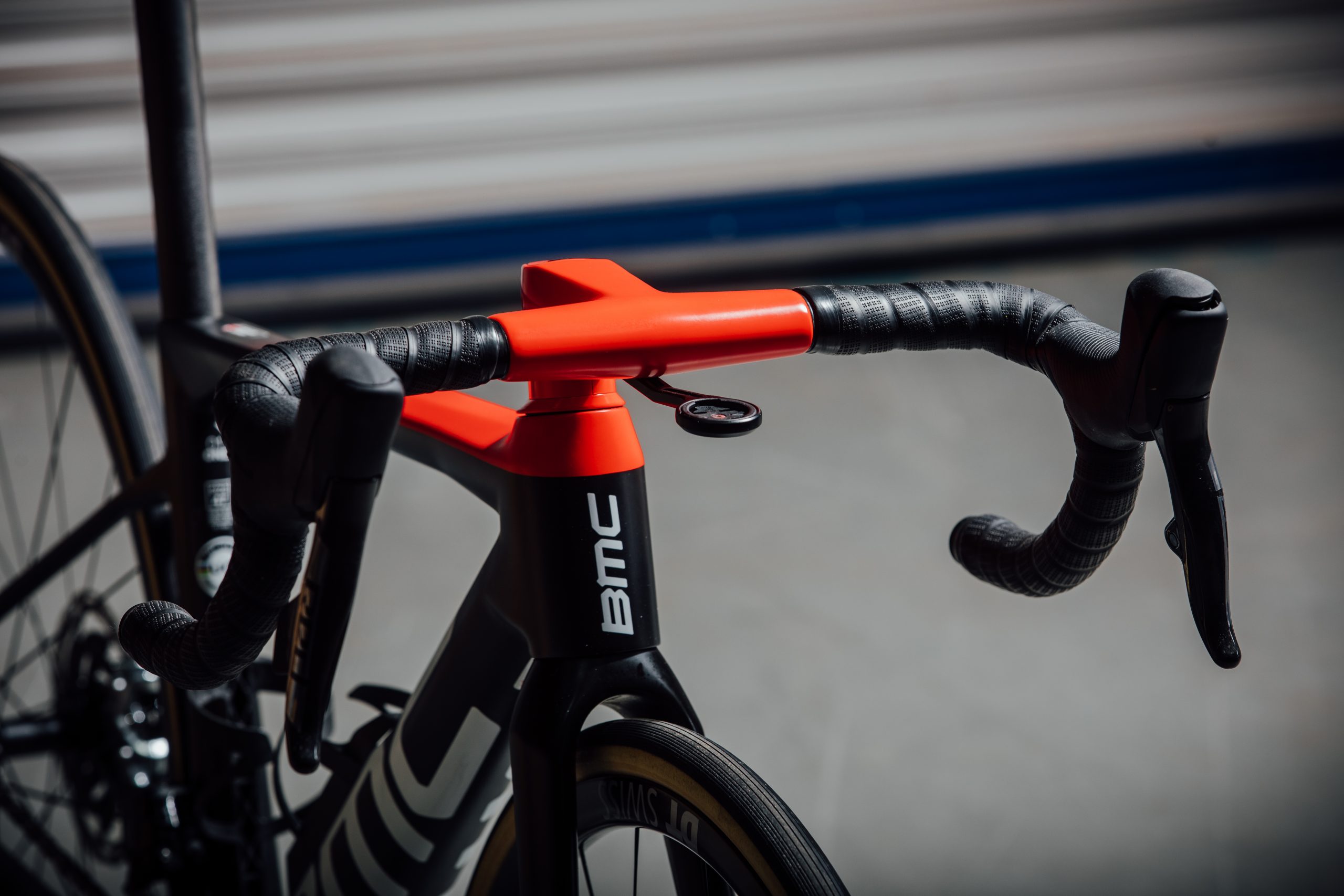
The ICS weighs in at 305g, and comes in 400m and 420m size, with stems from 90 to 140mm. The handlebar width range seems pretty limited, but having measured inside-to-inside on this bar, I got 380mm which is a size that works for me. There's also a slight flare, creating more stability when in the drops.
I did wonder if taller riders, seeking something wider, might find themselves out in the cold here - but Christ confirmed that the width choices represented current sales patterns, "people seem to be following a trend for narrower bars," he said.
This bar/steam combo comes at a -15 degree angle, which is pretty aggressive, and all the options have the same drop and reach.
The ICS2 is pretty smart, giving the same functionality as the ICS but allowing riders to swap their bars more easily - I'm very on board with this. Sizes range from 90mm to 140mm. Again, it's at a -15 degree angle and weighs 185g.
Both options come with an integrated computer mount, with fittings for Garmin or Wahoo computers.
Pricing and sizes
So, how much will it cost you? The Teammachine SLR01 models range from £6,599 Shimano Ultegra Di2 to £10,250 with SRAM AXS eTap and hydraulic discs, whilst the Teammachine SLR models start at a much more swallowable £2,700 with Shimano 105, up to £5,000 SRAM Force AXS.
The Teammachine comes in sizes 47, 51, 54, 56, 58 and 61.
Teammachine SLR01 models
Teammachine SLR01 ONE Complete Red AXS HRD £10,250 (6.5kg, size 54)
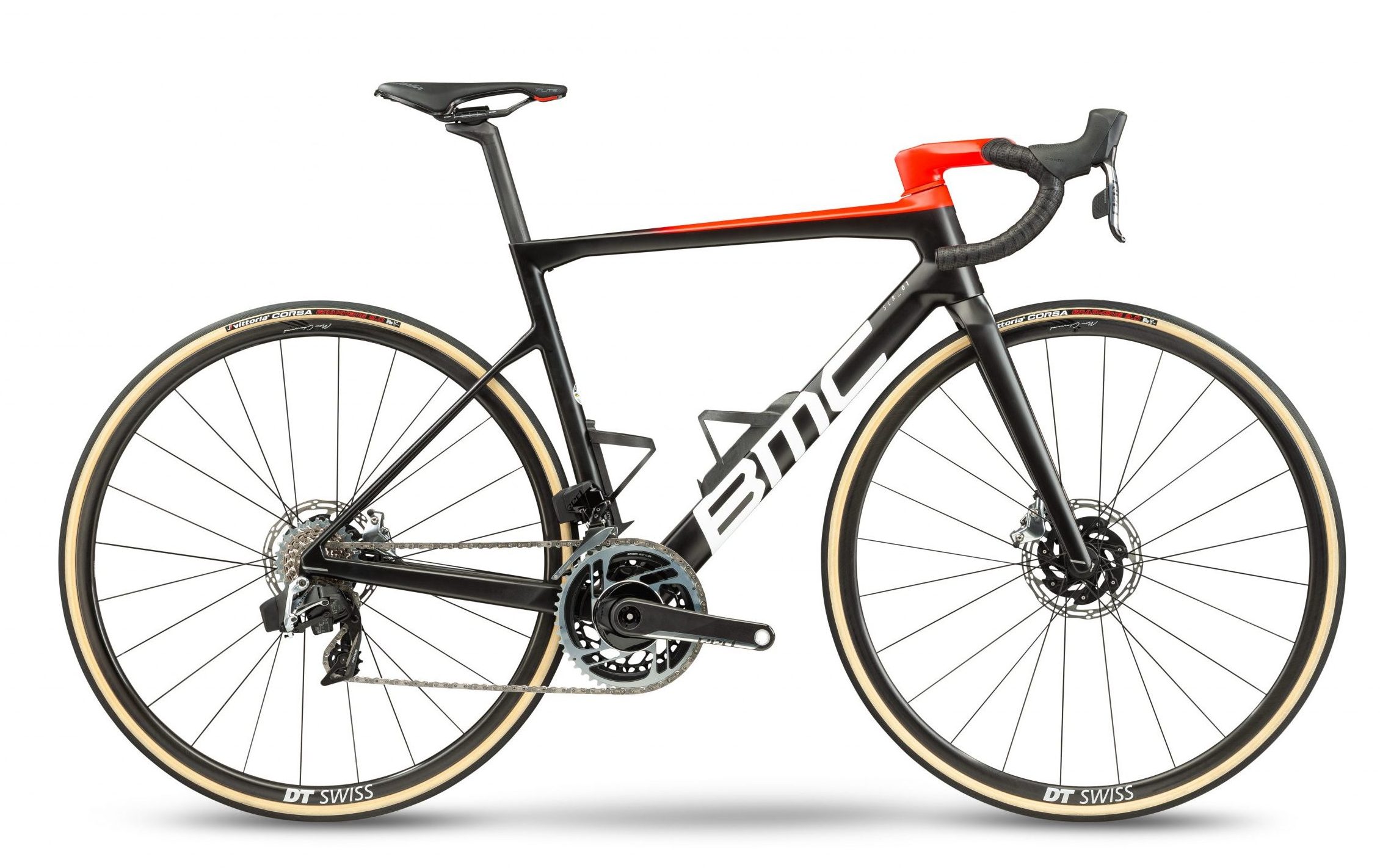
- Frame/Fork: Teammachine SLR 01 Premium Carbon with Aerocore Design
- Seatpost: Teammachine SLR 01 Premium Carbon, D-Shape, 15mm offset
- Bar/stem: ICS Carbon, One-Piece Full Carbon Cockpit
- Groupset: SRAM Red AXS HRD (48/35T, 10-28), 160mm rotors
- Wheels: DT Swiss PRC 1100 db Dicut Mon Chasseral
- Tyres: Vittoria Corsa, 25 mm
- Saddle: Selle Italia Flite Boost Carbon
- Max rider weight: 100 kg
- Colour: Carbon & Neon Red
All SLR 01 frames: ICS technology, stealth cable routing, integrated Aerocore bottle cages, stealth dropout design, PF86 bottom bracket, integrated seatpost binder, flat mount disc with 12x142 mm thru-axle (front) and 12x100 mm thru-axle (rear).
Teammachine SLR01 TWO Complete Dura Ace Di2 £9,800 (6.7kg, size 54)
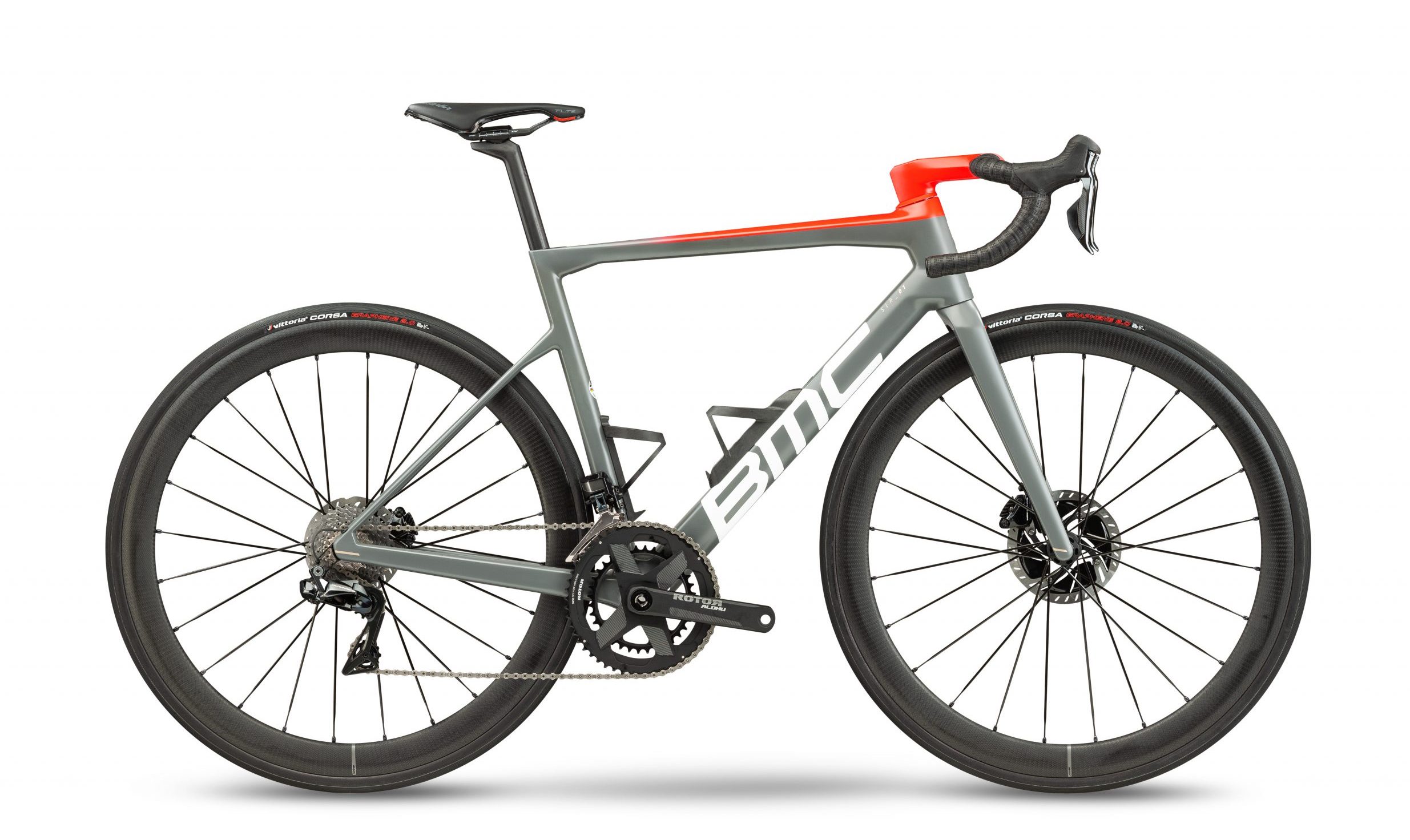
- Frame/Fork: Teammachine SLR 01 Premium Carbon with Aerocore Design
- Seatpost: Teammachine SLR 01 Premium Carbon, D-Shape, 15mm offset
- Bar/stem: ICS Carbon, One-Piece Full Carbon Cockpit
- Groupset: Shimano Dura Ace (52/36T, 11-30), 140 (f)/160 (r) mm rotors
- Wheels: Mavic Cosmic SLR 45
- Tyres: Vittoria Corsa, 25 mm
- Saddle: Selle Italia Flite Boost Carbon
- Max rider weight: 110 kg
- Colour: Iron Grey & Neon Red
Teammachine SLR01 THREE Complete Force AXS HRD £6,950 (7.4kg, size 54)
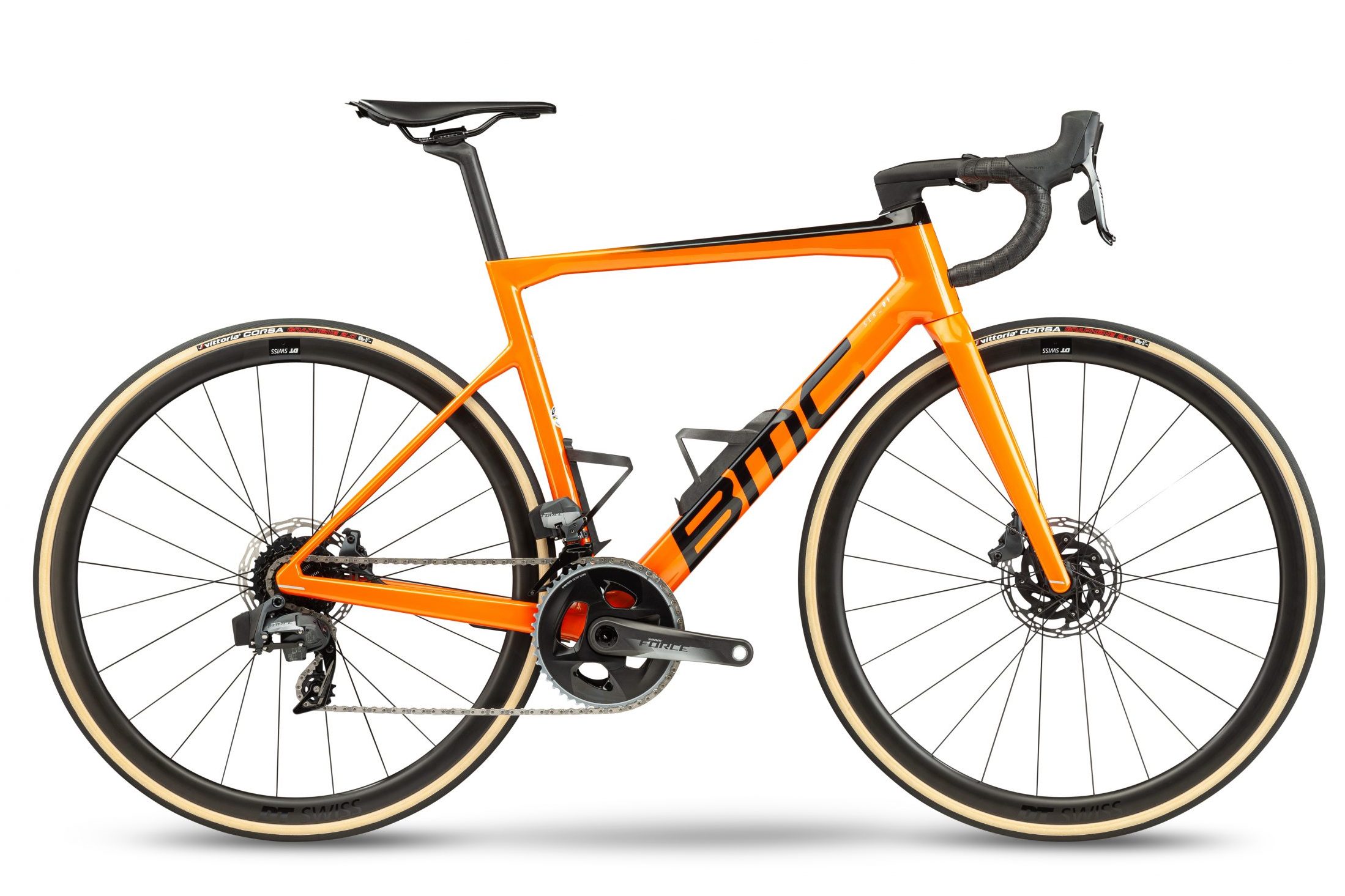
- Frame/Fork: Teammachine SLR 01 Premium Carbon with Aerocore Design
- Seatpost: Teammachine SLR 01 Premium Carbon, D-Shape, 15mm offset
- Bar/stem: BMC RAB 02, Ergo Top Shape, Compact Bend handlebar with BMC ICS2 stem
- Groupset: SRAM Force AXS HRD (48/35T, 10-28), 160mm rotors
- Wheels: DT Swiss PRC 1650 db Spline Carbon
- Tyres: Vittoria Corsa, 25 mm
- Saddle: Fizik Antares Versus Evo R5
- Max rider weight: 110 kg
- Colour: Metallic Orange & Carbon
Teammachine SLR01 FOUR Complete Ultegra Di2 Pearl Blue & Carbon £6,500 (7.2kg, size 54)
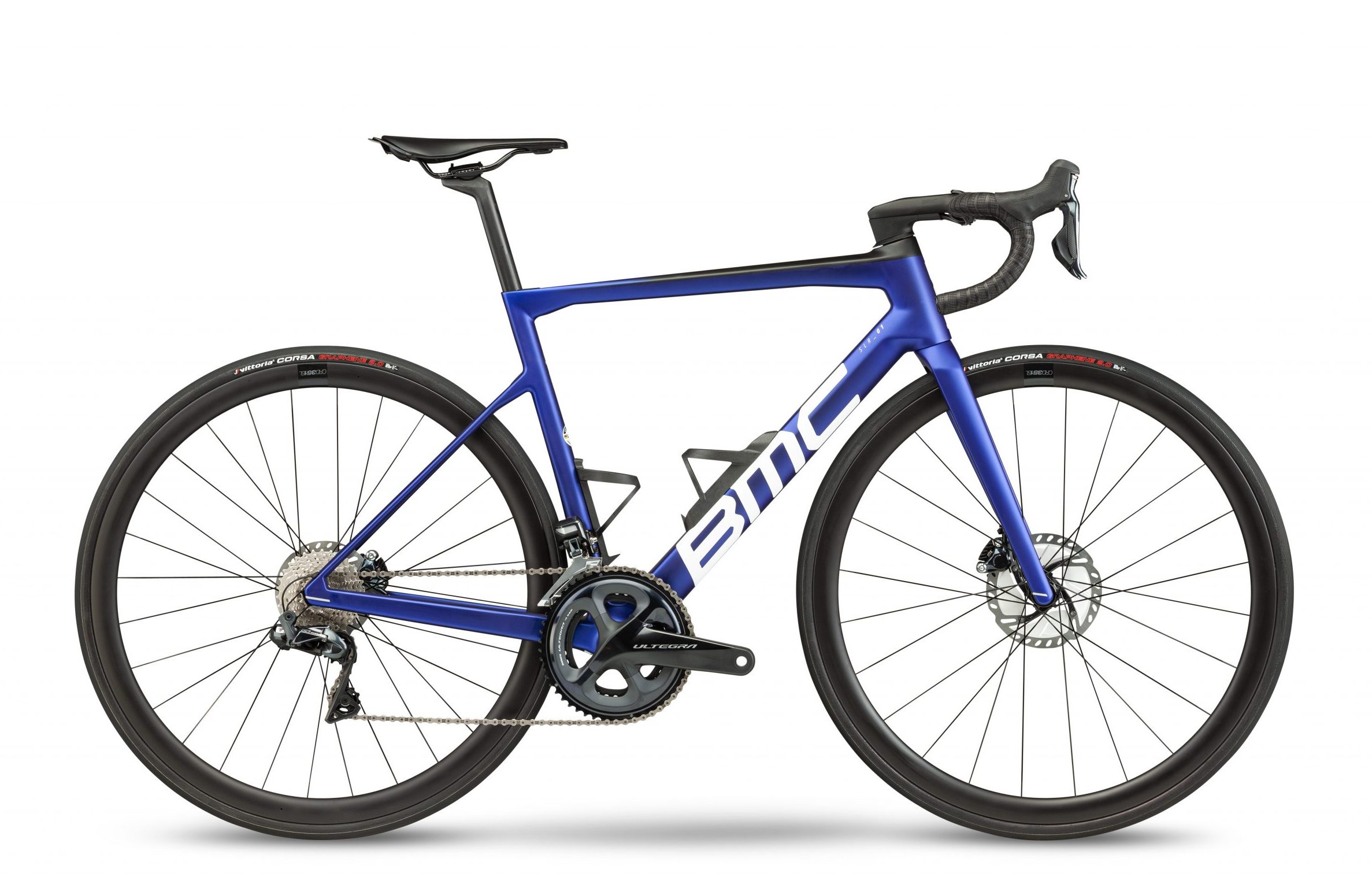
- Frame/Fork: Teammachine SLR 01 Premium Carbon with Aerocore Design
- Seatpost: Teammachine SLR 01 Premium Carbon, D-Shape, 15mm offset
- Bar/stem: BMC RAB 02, Ergo Top Shape, Compact Bend handlebar with BMC ICS2 stem
- Groupset: Shimano Ultegra Di2 (52/36, 11-30), 140 (f)/160 (r) mm rotors
- Wheels: DT Swiss PRC 1650 db Spline Carbon
- Tyres: Vittoria Corsa, 25 mm
- Saddle: Fizik Antares Versus Evo R5
- Max rider weight: 110 kg
- Colour: Pearl Blue & Carbon
Teammachine SLR01 MOD V1 Module Module Carbon & Neon Red £3,999 (1.95kg, size 54)
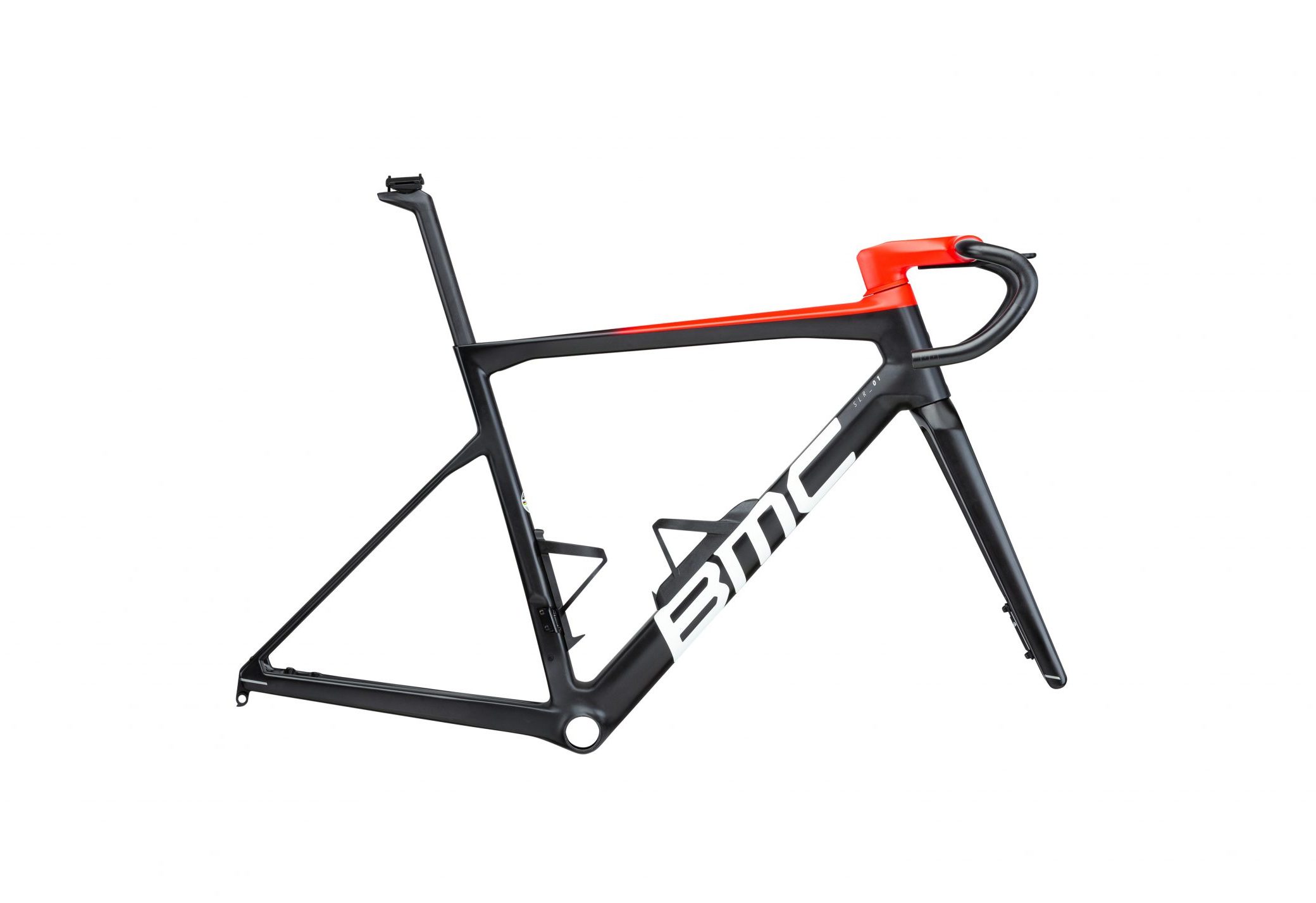
- Available in carbon/neon red, deep sea/neon red or poison green.
Teammachine SLR models
Teammachine SLR ONE Complete Force AXS HRD £5,000 (7.7kg, size 54)
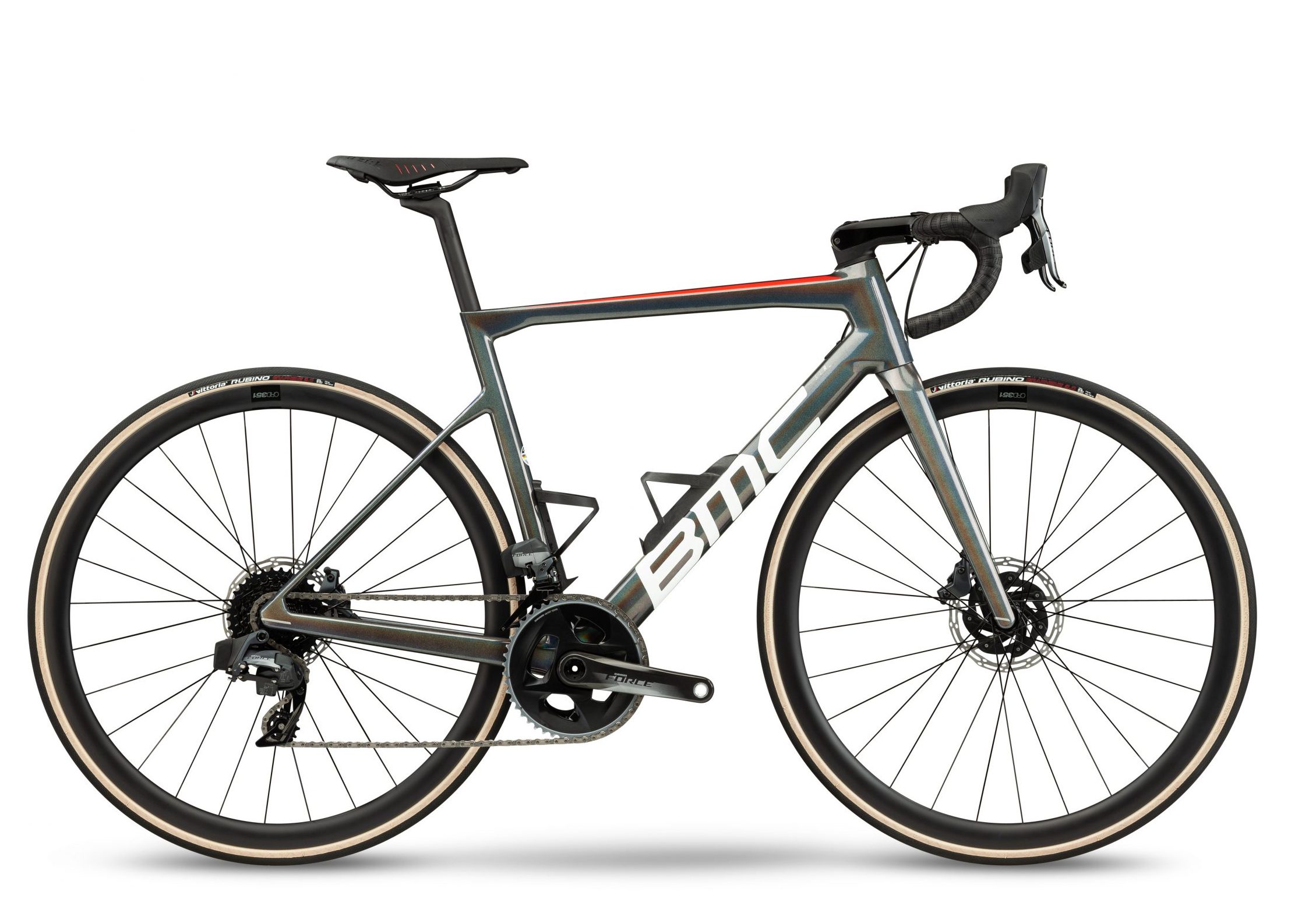
- Frame and fork: Teammachine SLR Carbon with Aerocore Design
- Bar/stem: BMC RAB 02, Ergo Top Shape, Compact Bend handlebar with BMC ICS2 stem
- Groupset: SRAM FORCE AXS HRD (48/35T, 10-28), 160mm rotors
- Wheels: CRD-351 Carbon, Tubeless Ready
- Tyres: Vittoria Rubino, 25 mm
- Saddle: Fizik Antares R7
- Max rider weight: 110kg
- Colour: Anthracite Prisma & White
All frames: integrated Aerocore bottle cages, stealth dropout design, PF86 bottom bracket, integrated seatpost binder, flat mount disc 12x142 mm thru-axle front 12x100 mm thru-axle rear.
Teammachine SLR TWO Ultegra Di2 £4,500 (7.7kg, size 54)
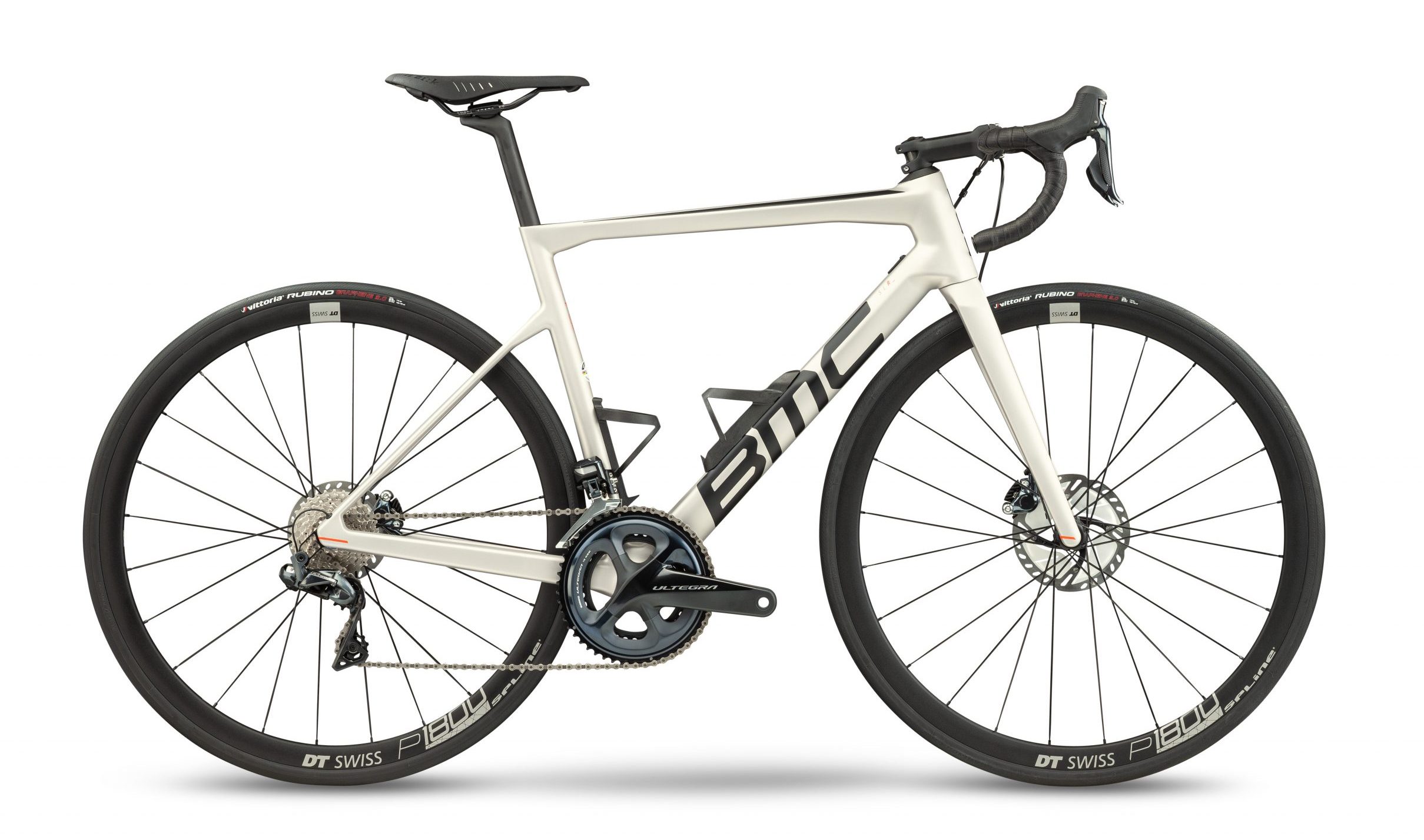
- Frame and fork: Teammachine SLR Carbon with Aerocore Design
- Bar/stem: BMC RAB 02, Ergo Top Shape, Compact Bend handlebar with BMC ICS2 stem
- Groupset: Shimano Ultegra Di2 (52/36, 11-30), 140/160mm rotors
- Wheels: DT Swiss P 1800 Spline db 32
- Tyres: Vittoria Rubino, 25 mm
- Saddle: Fizik Antares R7
- Max rider weight: 110kg
- Colour: Pearl Grey & Black
Teammachine SLR THREE Ultegra £3,500 (7.8kg, size 54)
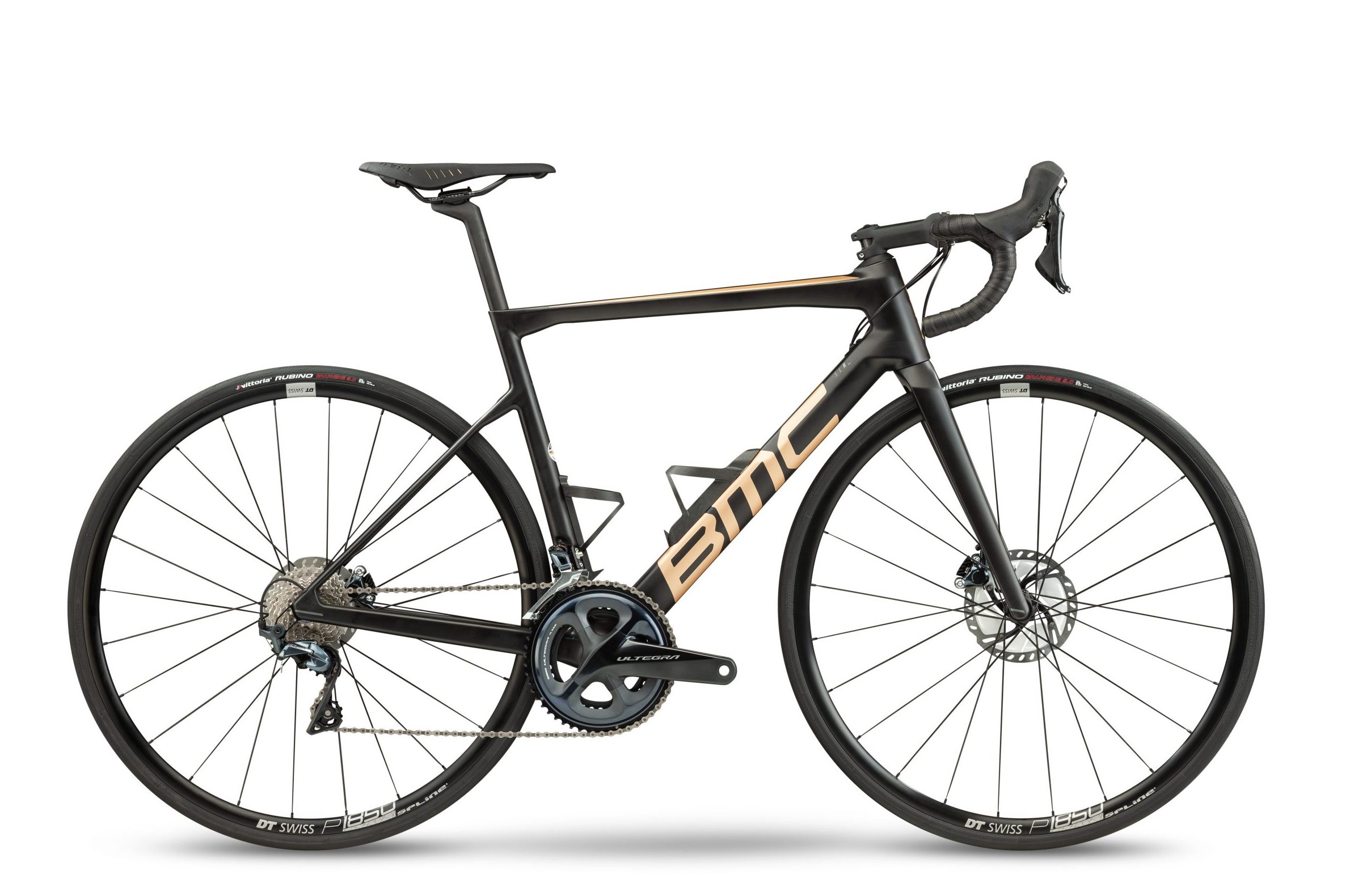
- Frame and fork: Teammachine SLR Carbon with Aerocore Design
- Bar/stem: BMC RAB 02, Ergo Top Shape, Compact Bend handlebar with BMC ICS2 stem
- Groupset: Shimano Ultegra (52/36, 11-30), 140/160mm rotors
- Wheels: DT Swiss P 1800 Spline db 32
- Tyres: Vittoria Rubino, 25 mm
- Saddle: Fizik Antares R7
- Max rider weight: 110kg
- Colour: Carbon & Gold
Teammachine SLR FOUR 105 £2,700 (81.kg, size 54)
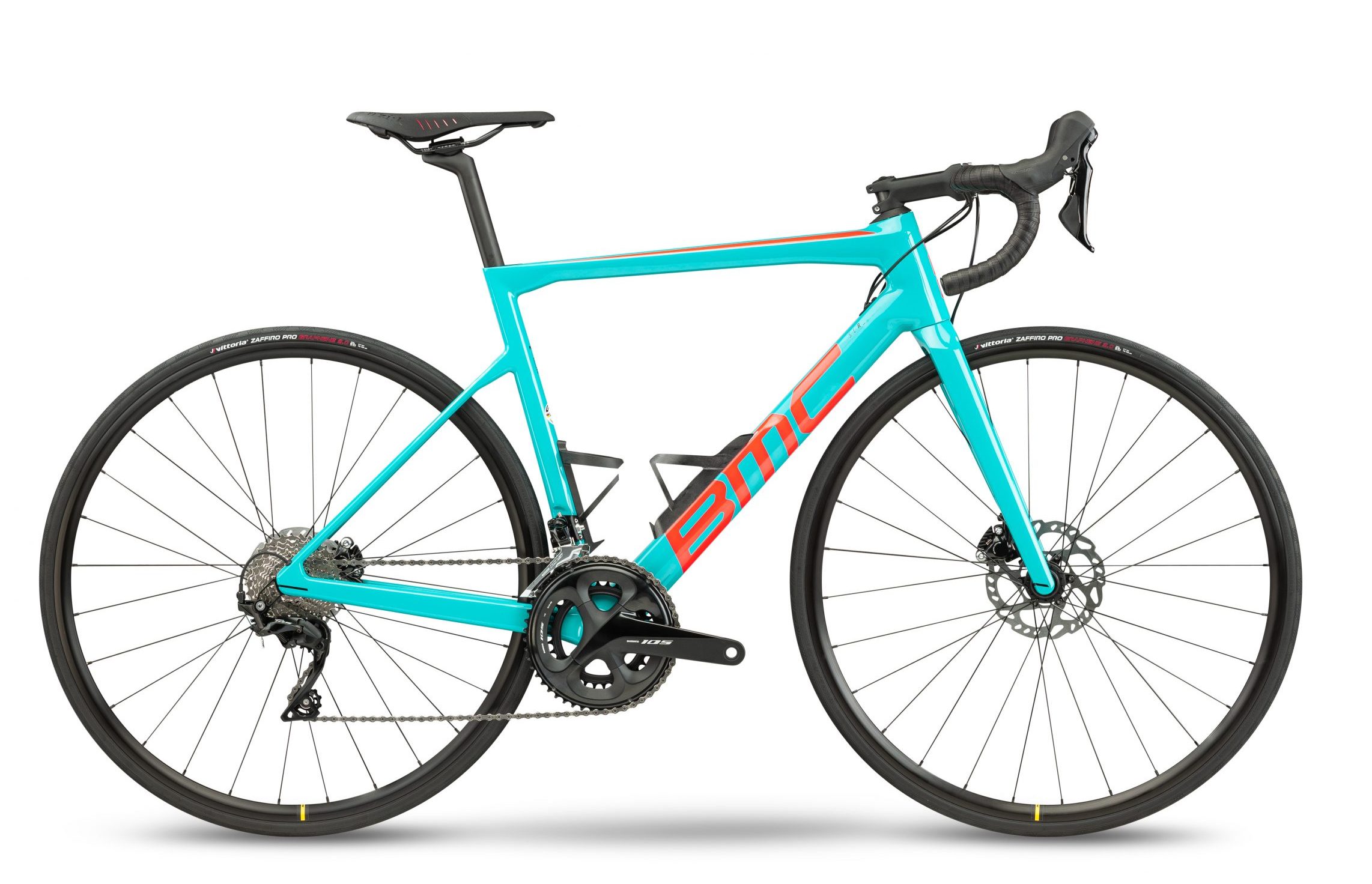
- Frame and fork: Teammachine SLR Carbon with Aerocore Design
- Bar/stem: BMC RAB 02, Ergo Top Shape, Compact Bend handlebar with BMC ICS2 stem
- Groupset: Shimano 105 (52/36, 11-30), 140/160mm rotors
- Wheels: DT Swiss P 1800 Spline db 32
- Tyres: Vittoria Rubino, 25 mm
- Saddle: Fizik Antares R7
- Max rider weight: 110kg
- Colour: Racing Red & Brushed Silver or Blue & Red
Michelle Arthurs-Brennan the Editor of Cycling Weekly website. An NCTJ qualified traditional journalist by trade, Michelle began her career working for local newspapers. She's worked within the cycling industry since 2012, and joined the Cycling Weekly team in 2017, having previously been Editor at Total Women's Cycling. Prior to welcoming her first daughter in 2022, Michelle raced on the road, track, and in time trials, and still rides as much as she can - albeit a fair proportion indoors, for now.
Michelle is on maternity leave from April 2025 until spring 2026.
